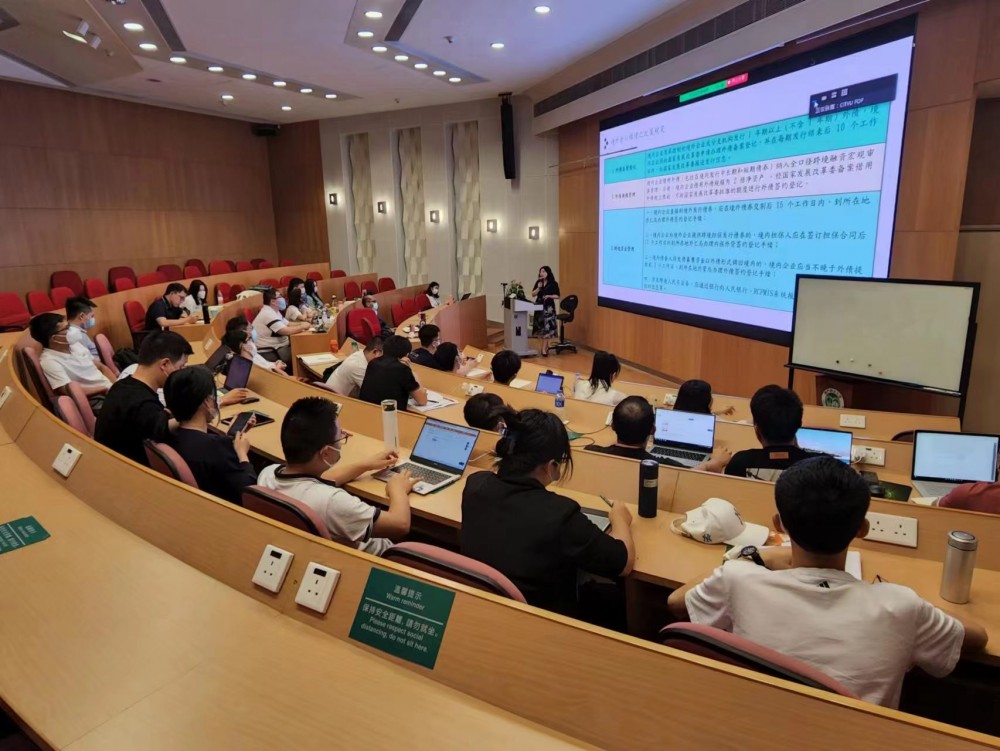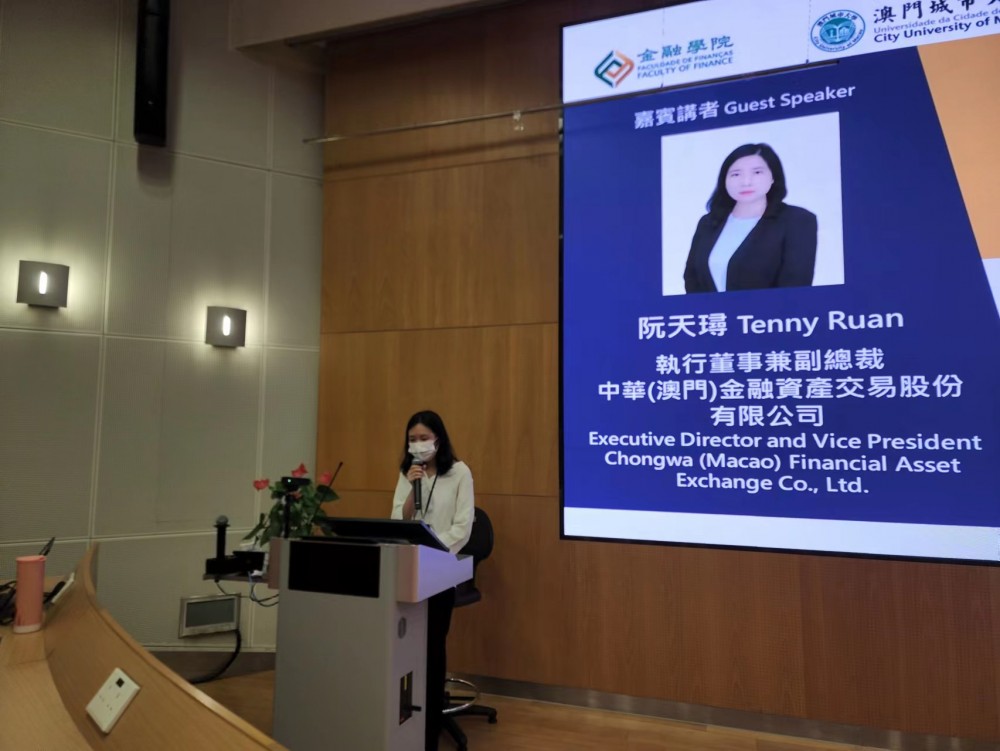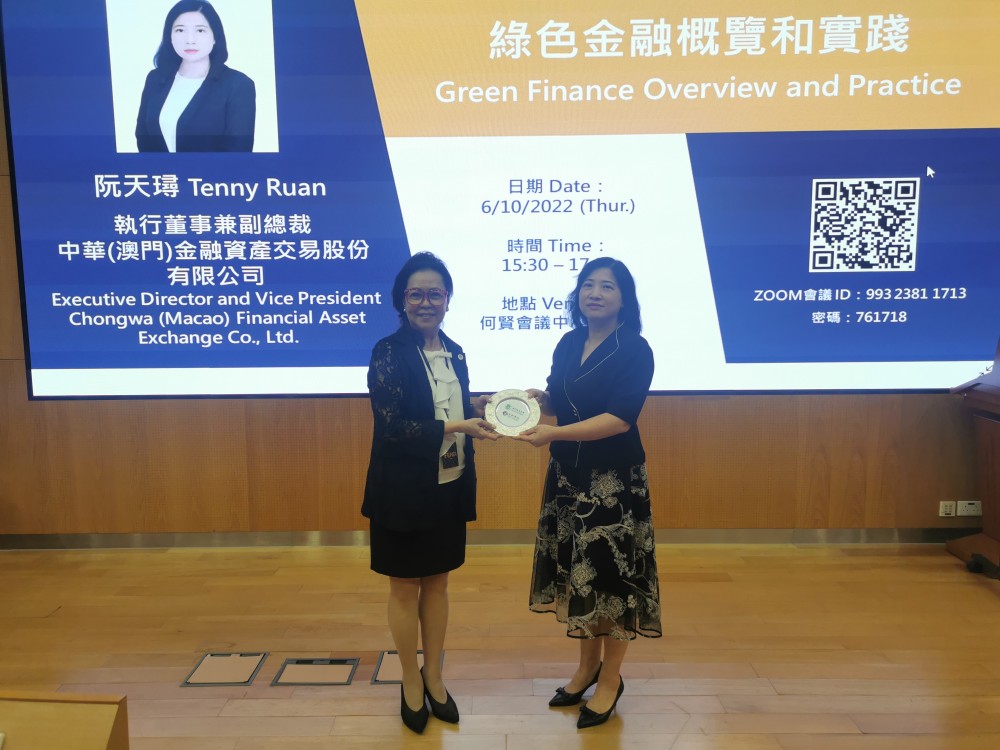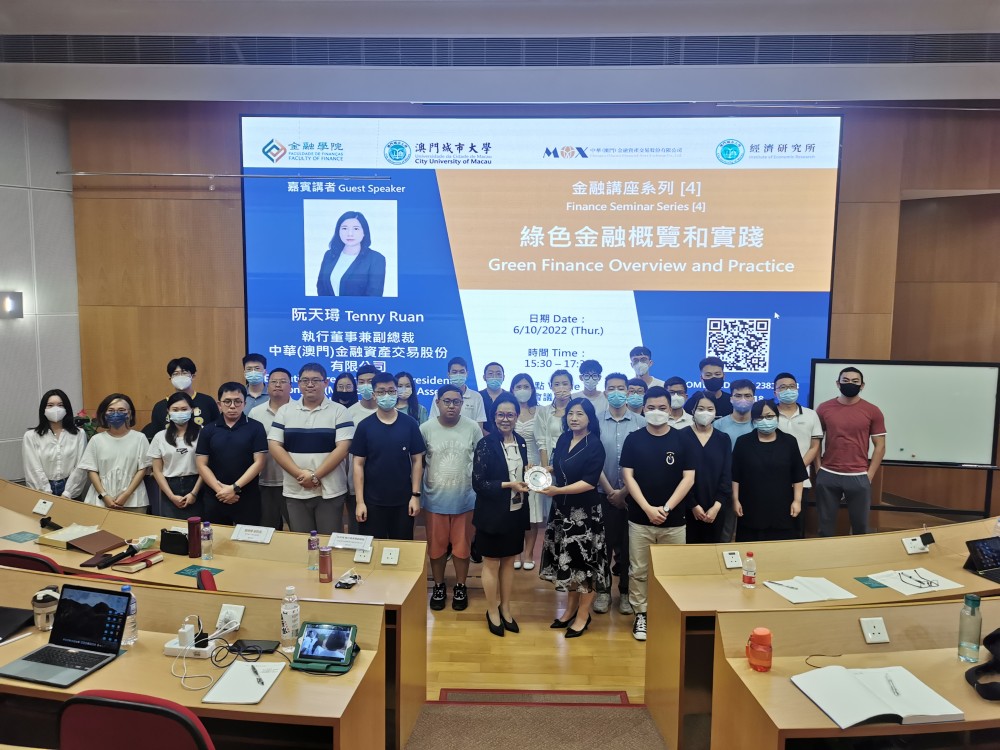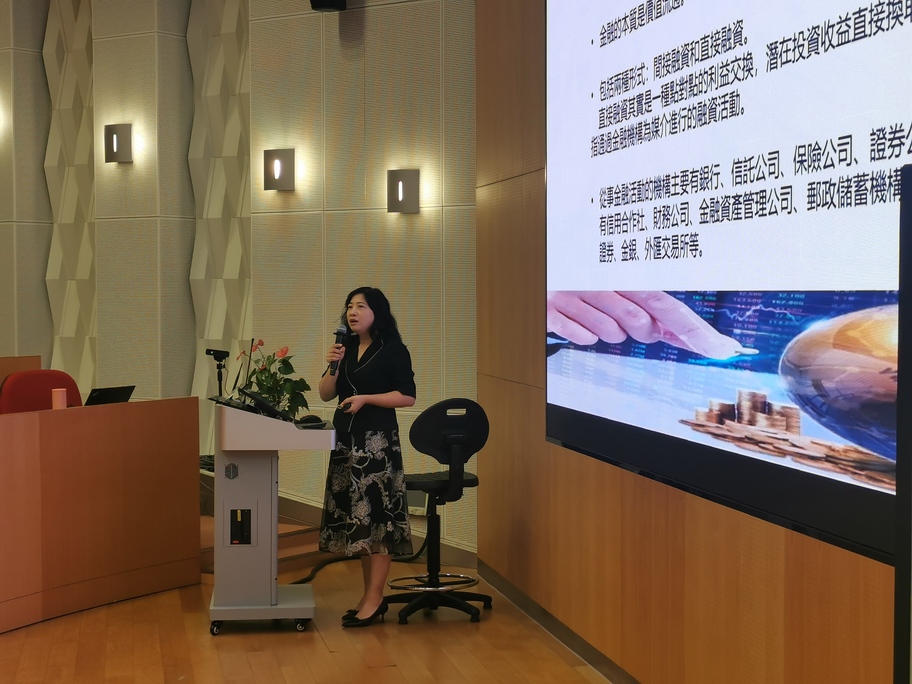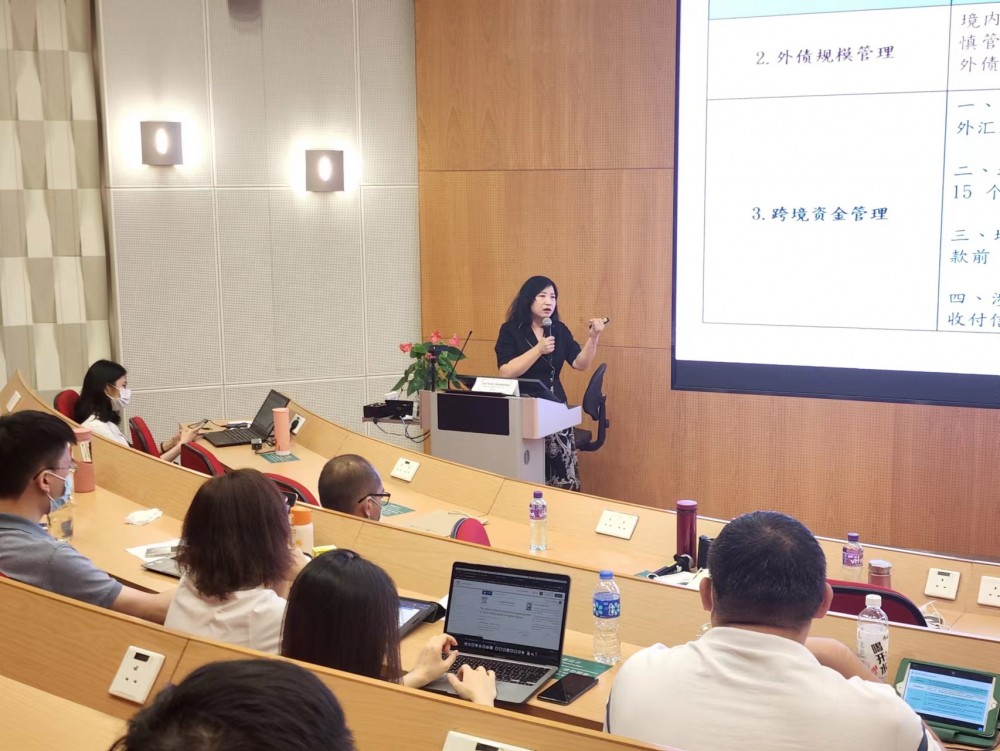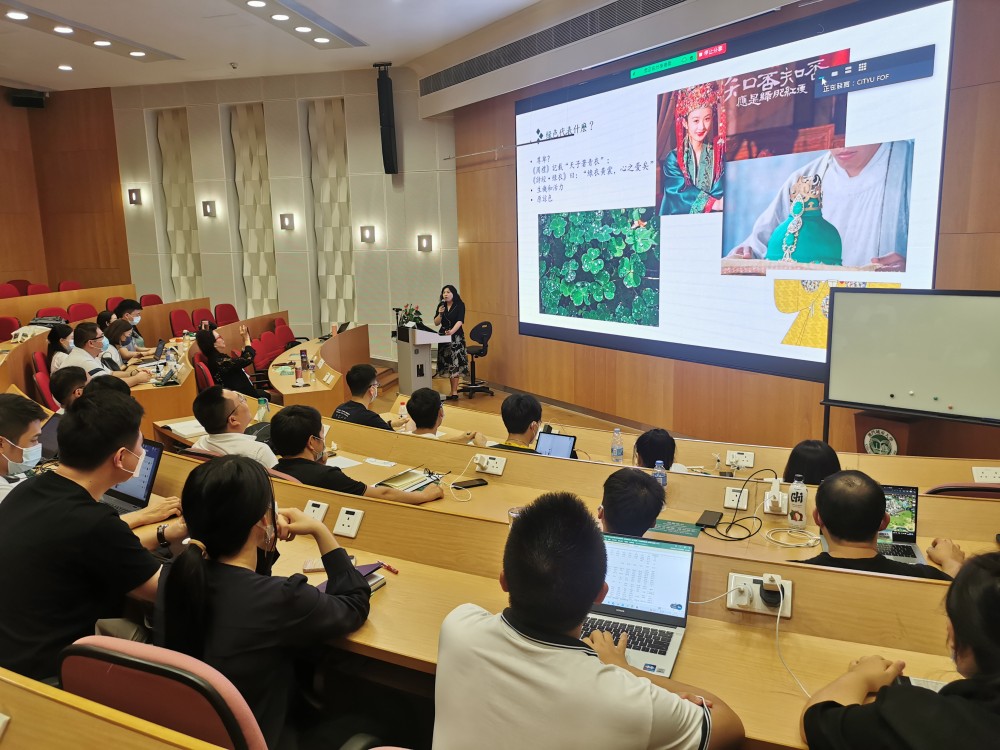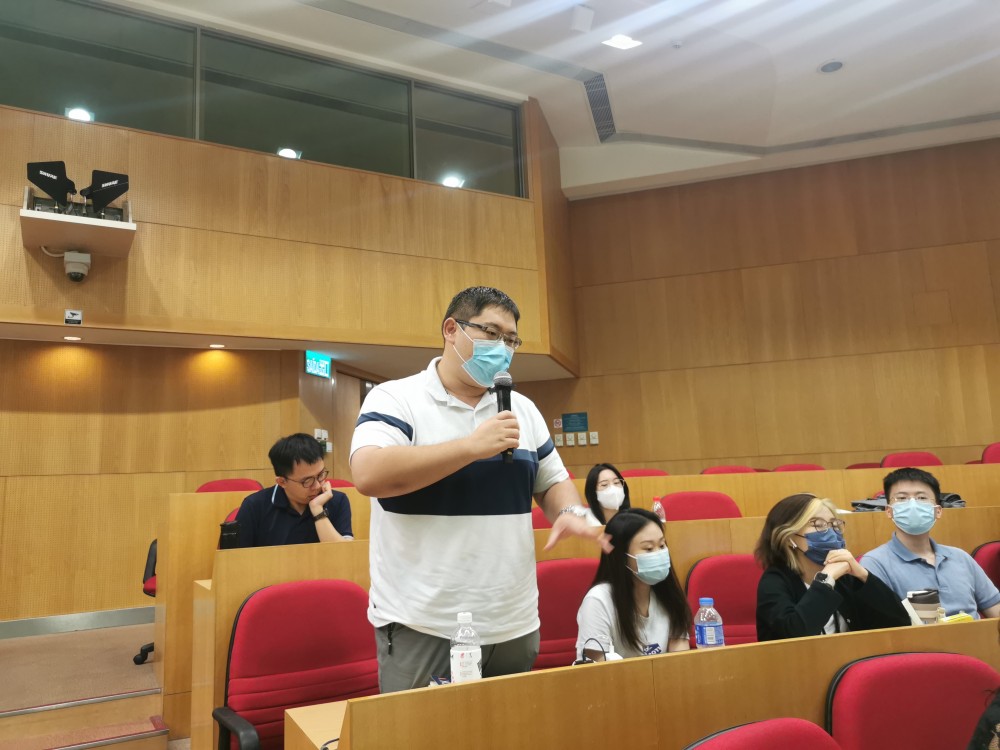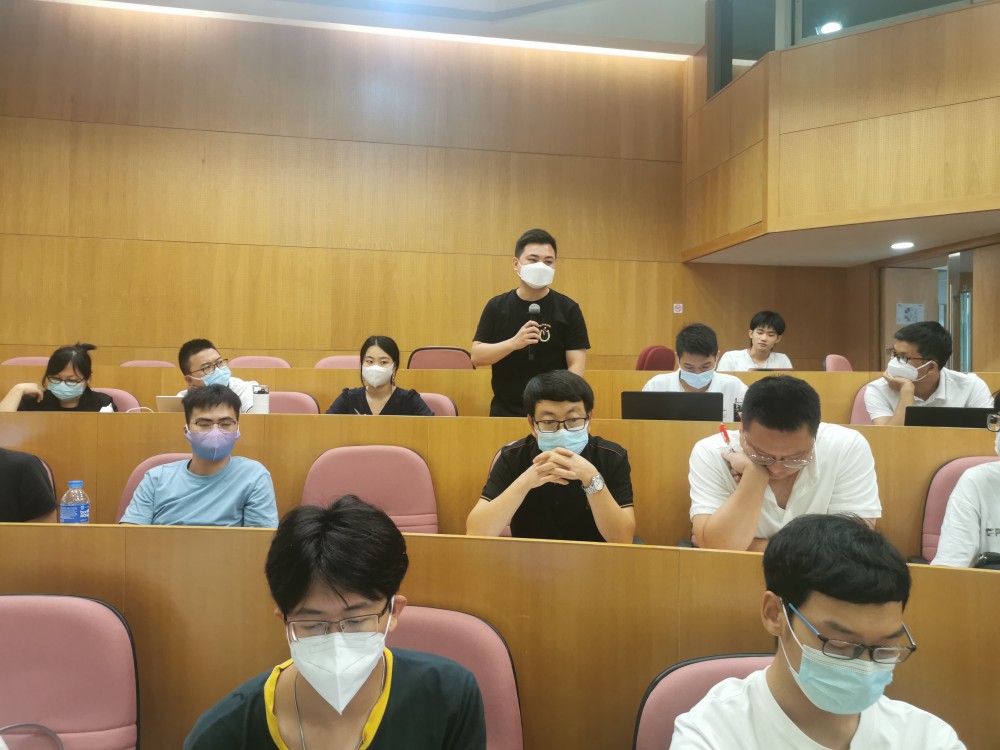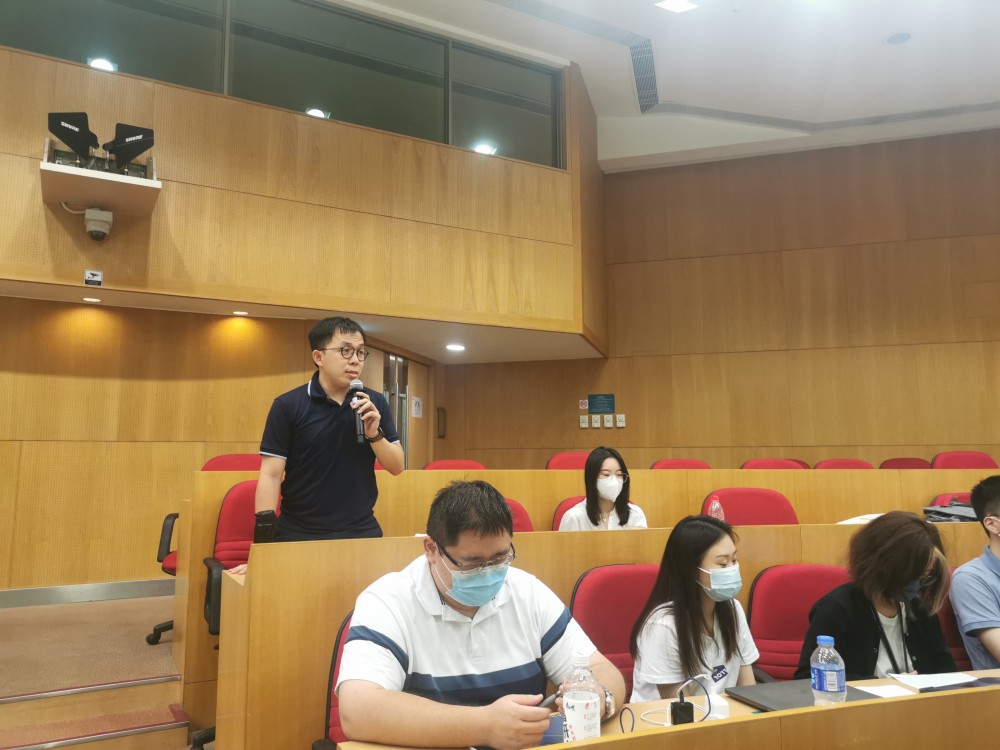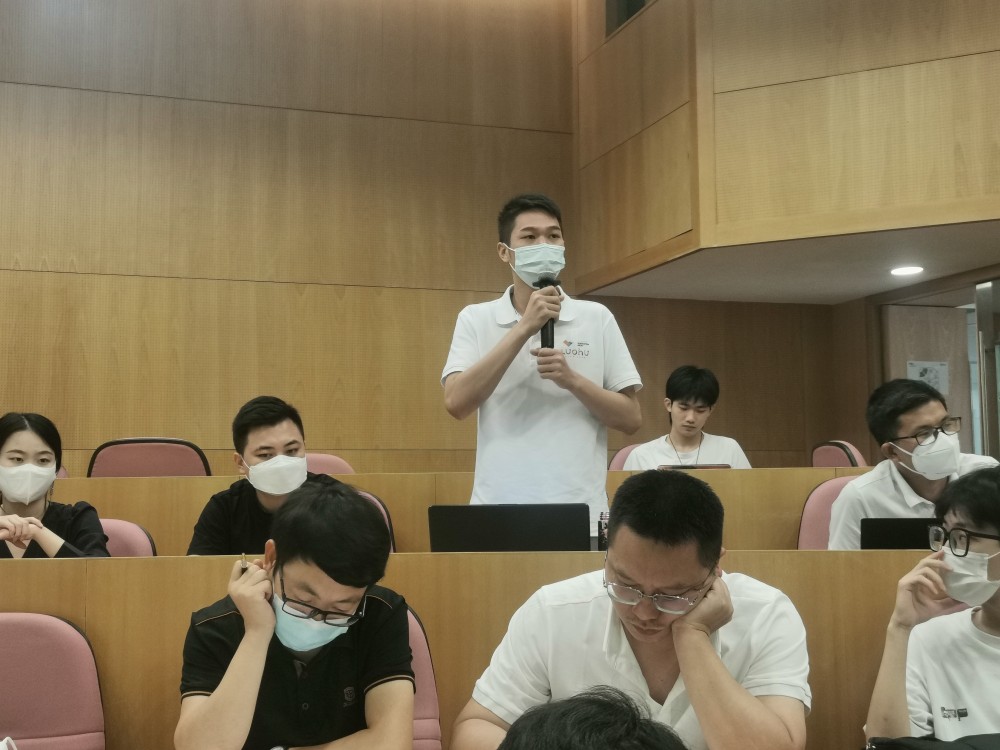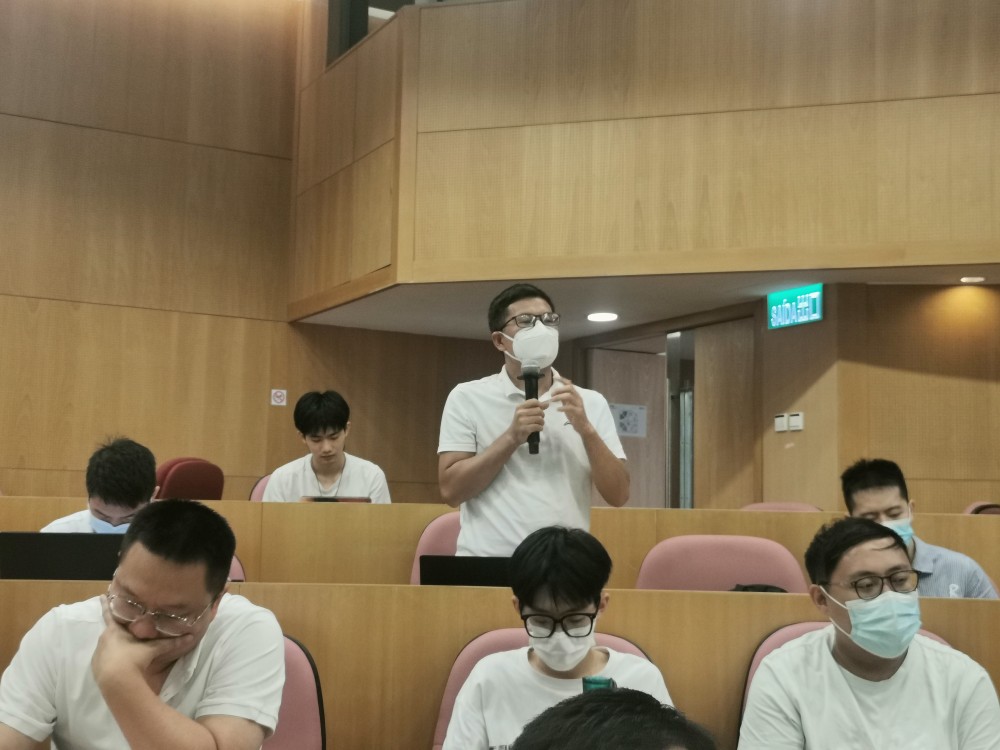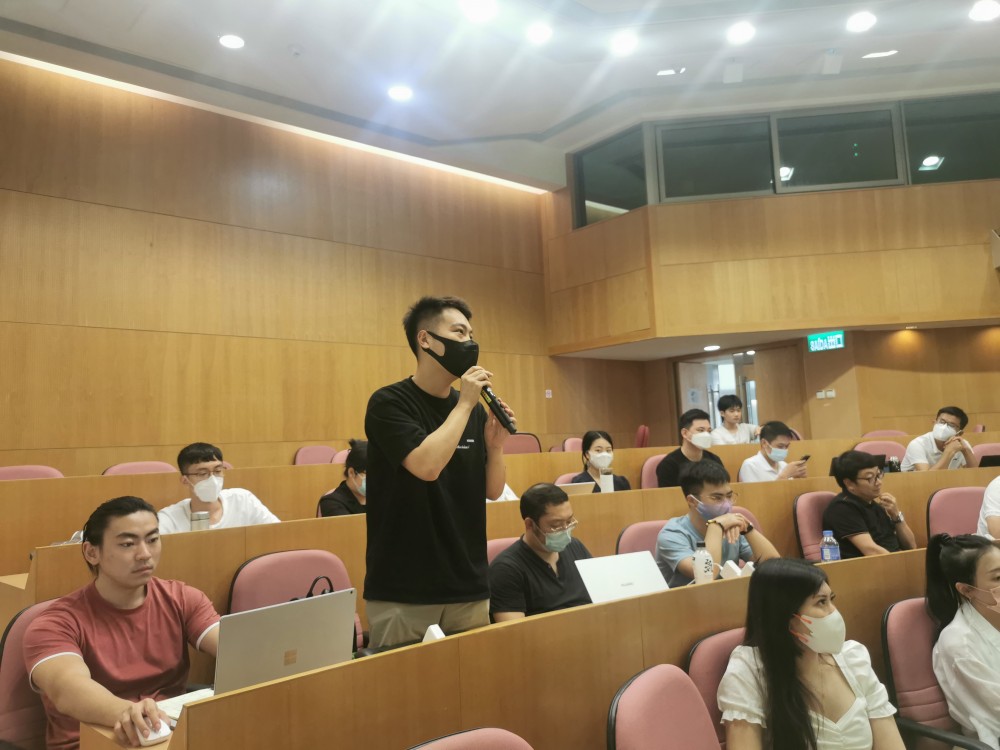On 6 October 2022, the Faculty of Finance of the City University of Macao held the Finance Seminar Series [4] at the Ho Yin Convention Centre. Ms Tenny Ruan, Executive Director and Vice President of Chongwa (Macao) Financial Asset Exchange Co., Ltd., was invited to deliver a speech titled “Green Finance Overview and Practice”. Guests attending this seminar include Associate Dean Eva Khong, City University of Macao.
Ms Tenny Ruan first explained what is meant by finance. Finance is an economic activity that takes money itself as its business purpose and increases the value of money through currency financing. Its essence is the circulation of value. Institutions engaged in financial activities mainly include banks, trust companies, insurance companies, securities companies, investment funds, credit cooperatives, finance companies, financial asset management companies, postal savings institutions, financial leasing companies, and securities, gold and silver, foreign exchange exchanges, etc. Ms Ruan also introduced the main features of finance. Finance is a credit transaction, which can occur between various economic components. Credit is the foundation of finance. Finance can best reflect the principles and characteristics of credit. In the developed commodity economy, credit has been integrated with currency circulation. Financial products refer to various carriers in the financing process, and are various non-physical assets with economic value that can be publicly traded or cashed, also known as negotiable securities, such as cash, bills of exchange, stocks, futures, bonds, insurance policies, etc.
Green finance contains two meanings. One is how the financial industry promotes the sustainable development of environmental protection and economic society, and the other is the sustainable development of the financial industry itself. Compared with traditional finance, green finance emphasizes the survival and environmental benefits of human society. It takes environmental protection and effective utilization of resources as one of the standards to measure the effectiveness of its activities, and guides economic entities to pay attention to natural ecological balance through their own activities. It emphasizes the coordinated development of financial activities, environmental protection and ecological balance, and ultimately achieves sustainable development of economy and society. Green finance has something in common with policy finance in traditional finance, that is, its implementation needs to be promoted by government policies. Ms Ruan mentioned that the goals of green finance include the global response to climate change, the “carbon peaking and carbon neutrality” goal and China's sustainable development. At present, the main forms of green finance in China include green credit, green securities, green trust, green insurance, green investment and carbon finance.
Green bonds refer to debt financing instruments issued by domestic and overseas enterprises with legal person status, and raised funds are used for green projects such as energy conservation and environmental protection, pollution prevention and control, resource conservation and recycling. Compared with ordinary bonds, green bonds are special in four aspects: the use of bond raised funds, green project evaluation, raised funds management and information disclosure. In order to vigorously develop green finance, the country and relevant departments have continuously improved their policies on green bonds. For example, with the approval of the People's Bank of China and the China Securities Regulatory Commission this year, the Green Bond Standards Committee issued the “China Green Bond Principles” to encourage enterprises to issue green bonds. According to data, China's green bond market and its issuance volume ranked second in the world in 2021, and the issuance growth rate was also ahead of other markets.
Ms Ruan elaborated on the current situation of Macao's financial market. Macao has the institutional advantages of relying on mainland China and facing the world, with a stable financial system and a solid financial market foundation. It also leverages its positioning as a service platform for business cooperation with Portuguese-speaking countries to promote the development of the financial industry. Only local companies and companies outside Macao that have their financial status audited by auditors and meet certain requirements can issue corporate bonds to professional investors in Macao in the form of public subscription. The issuance process of Macao green bonds is divided into three stages: preliminary preparation, bond issuance application and bond issuance. During the duration of the bond, the issuing company must disclose the major events that may affect its solvency or bond price through the website of the trading institution and the issuing company in a timely manner, explaining in detail the cause, current status of the event and possible consequences. Lastly, Ms Ruan ended the sharing with two cases of green bond issuance in Macao as examples.
At the end of the sharing session, the students took this valuable opportunity to actively pose questions related to Macao, the Greater Bay Area and even the international bond market. Ms Tenny Ruan answered in detail. The Faculty of Finance would like to thank Ms Ruan for her commitment to supporting the City University of Macau and assisting the Faculty of Finance in building an exchange platform. In the Seminar, students paid attention to the market situation of green bonds and green finance in Macao, and gained a lot through the series of financial seminars. The students also expressed their expectations for the sharing of the next finance seminar.



